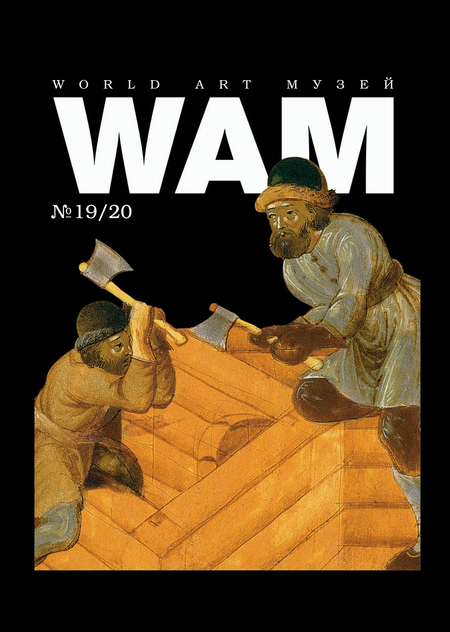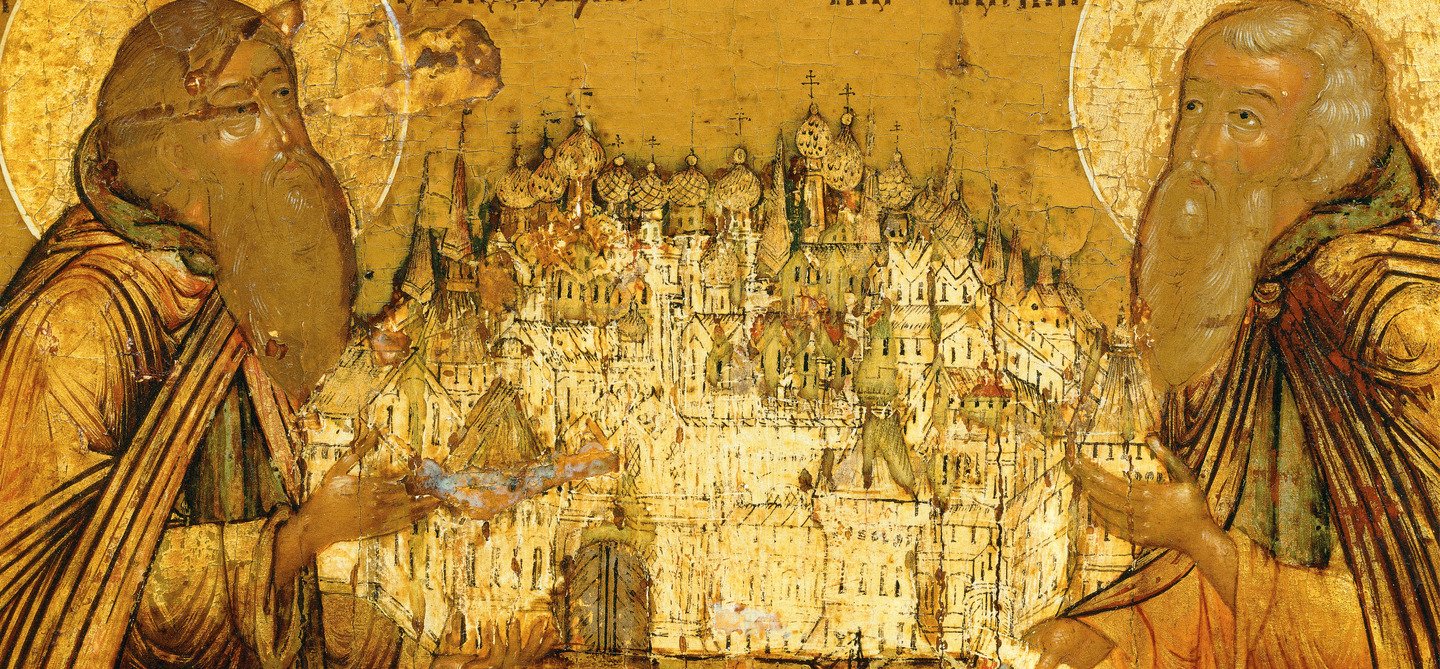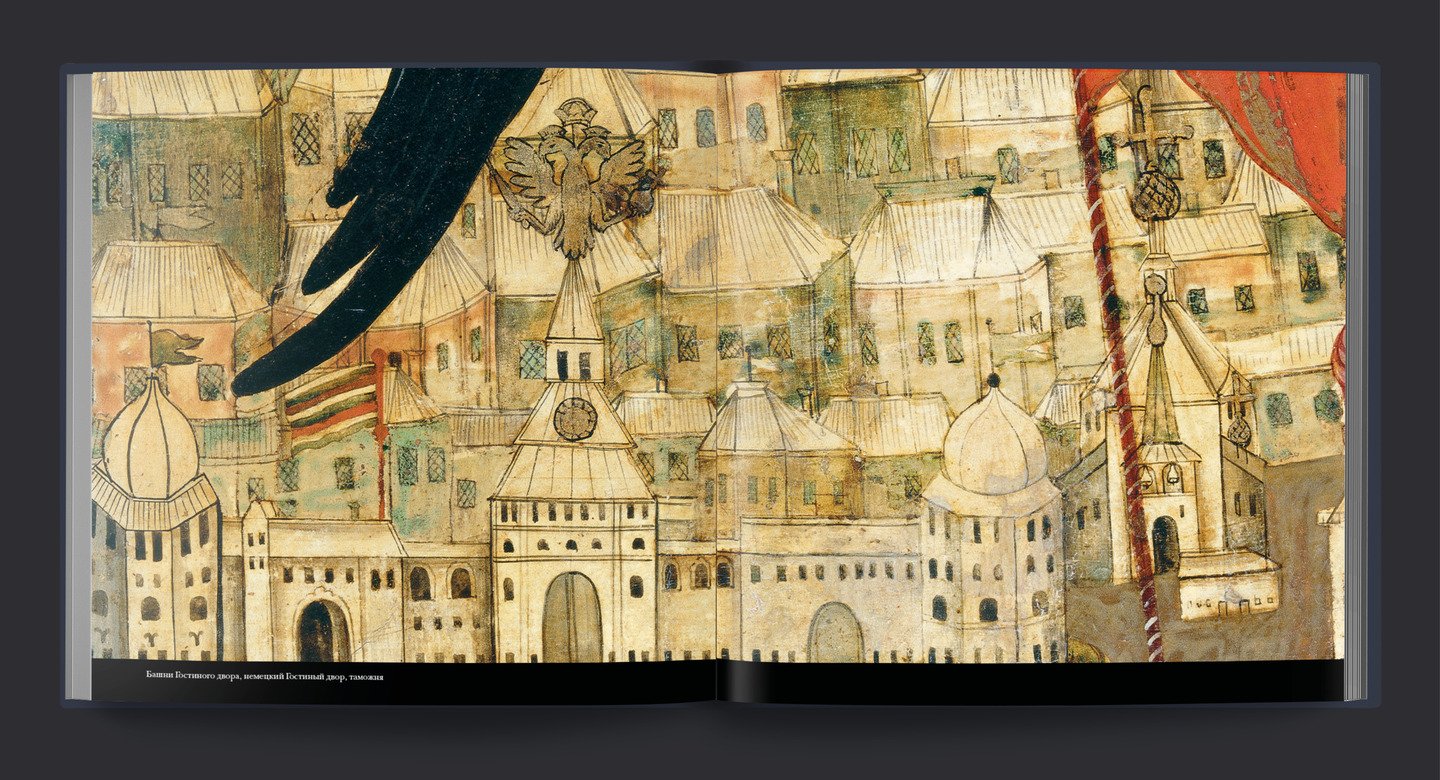
The architecture of Russia in its icon

The book mainly collects the works of the so-called «late iconography», which represents a large layer of domestic culture that has been neglected until recently. For the first time, an attempt was made to catalogue and analyse an icon depicting architectural structures from a meeting of the Colomensky State Museum.


On the left: the panorama of the Moscow Kremlin. On the right: The Bell of Ivan the Great, the Arkhangel Cathedral. Fragments of the icon of God’s Godmother of God (Moscow)
Artistic artists, while depicting the shrines of their homeland, ancient cities and places surrounding their nature, used traditional iconic techniques and canons, but sought to convey reality, creating a unique artistic structure marked by rare beauty and poetry, a special vision of the world. Aesthetic icon with architectural background is yet to be considered systematically and seriously; this area of iconic history has not been the subject of a separate monograph study.
On the left: Battle under the walls of the city. On the right: Archbishop John removes the cloak and gathers the tears of God’s mother. Fragments of the icon of God’s Glory, with images of the battle of the Novgorods with the Band-Aids
While in the early icons the main function of architecture was to mark the location, more precise types of real buildings were gradually developed and sometimes explanatory inscriptions were introduced. Iconographers, using old images, sometimes created complex semi-fantastic compositions that symbolize the Solovec monastery. Later, new images of the architectural panorama appeared. At times, the masters have sought to structure the composition in such a way that it tends to continue outside the icon board.
On the left: the Cathedral of God. On the right: the Church of Pokrov, the Belle, the Cathedral of God. The Icon Fragments of Neil Stolobensky
The view of the real architectural complexes served as glorification, as if the saint represented and consecrated the monastery. At the same time, the image of the monastery helped to identify the holy one.
On the left: the Borov Monastery. On the right: the Cathedral of Our Lady’s Christmas. Fragments of the icon of Pafnuti Borovsky
The icon architecture provides some information; rather, it serves as a «marking» of specific structures. In particular, the Monastery was always written green, and the Cathedral of Uspen was yellow. The iconographer, in depicting a structure, was primarily concerned about the recognition of its prototype rather than about the transfer of small parts that were not essential in achieving that goal. Therefore, the building that needed to be distinguished acquired individual features: some architectural shapes, color, and an explanatory inscription.
On the left: Nicole and Uspena Church, caller. On the right: Transformed cathedral, caller. Fragments of Zosim and Savvaty Solovecki icons
Some icons with species of cities and monasteries were used by architects to reconstruct individual monuments or urban complexes. This makes the icon a valuable historical source for the study of the Russian North’s wooden defenses, the civil construction, and the planning of the 17th-century fortress city.
The value of the icon is, in particular, that it has brought to our time the original form of many monuments that have since been rebuilt or lost.
Left: Screen bookmark. On the right: Building a stone church. Fragments of the icon of the Bohemian Tihwinian, with miracles in 14 brands
On the left: booking of a wooden church on the bank of the Tihwinki River. On the right: the phenomenon of icons on the Oyat-rek. Fragments of the icon of the Bohemian Tihwinian, with miracles in 14 brands